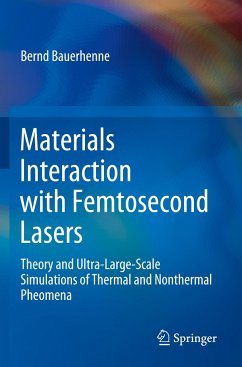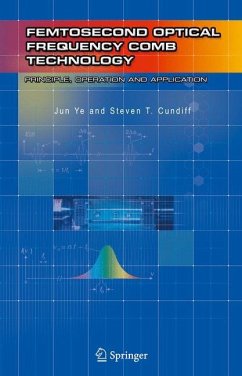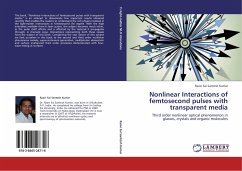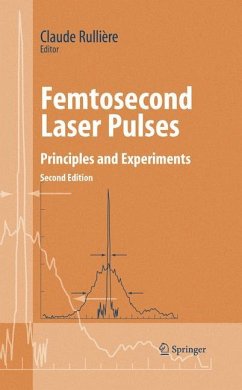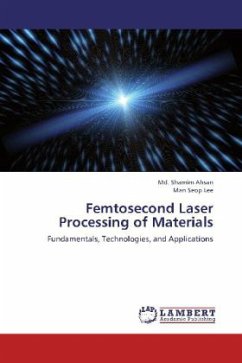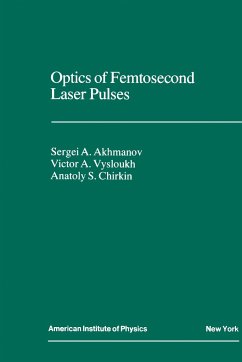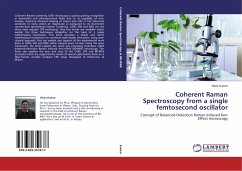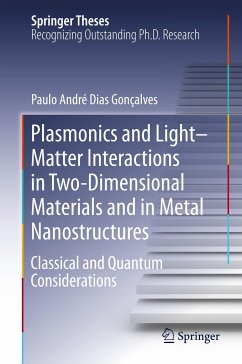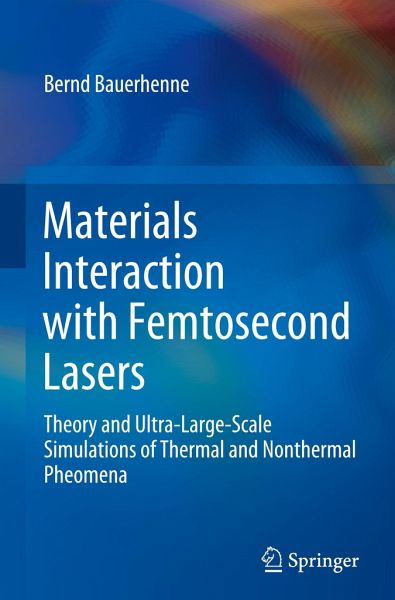
Materials Interaction with Femtosecond Lasers
Theory and Ultra-Large-Scale Simulations of Thermal and Nonthermal Pheomena
Versandkostenfrei!
Versandfertig in 6-10 Tagen
121,99 €
inkl. MwSt.
Weitere Ausgaben:

PAYBACK Punkte
61 °P sammeln!
This book presents a unified view of the response of materials as a result of femtosecond laser excitation, introducing a general theory that captures both ultrashort-time non-thermal and long-time thermal phenomena. It includes a novel method for performing ultra-large-scale molecular dynamics simulations extending into experimental and technological spatial dimensions with ab-initio precision. For this, it introduces a new class of interatomic potentials, constructed from ab-initio data with the help of a self-learning algorithm, and verified by direct comparison with experiments in two diff...
This book presents a unified view of the response of materials as a result of femtosecond laser excitation, introducing a general theory that captures both ultrashort-time non-thermal and long-time thermal phenomena. It includes a novel method for performing ultra-large-scale molecular dynamics simulations extending into experimental and technological spatial dimensions with ab-initio precision. For this, it introduces a new class of interatomic potentials, constructed from ab-initio data with the help of a self-learning algorithm, and verified by direct comparison with experiments in two different materials - the semiconductor silicon and the semimetal antimony.
In addition to a detailed description of the new concepts introduced, as well as giving a timely review of ultrafast phenomena, the book provides a rigorous introduction to the field of laser-matter interaction and ab-initio description of solids, delivering a complete and self-contained examination of the topic from thevery first principles. It explains, step by step from the basic physical principles, the underlying concepts in quantum mechanics, solid-state physics, thermodynamics, statistical mechanics, and electrodynamics, introducing all necessary mathematical theorems as well as their proofs. A collection of appendices provide the reader with an appropriate review of many fundamental mathematical concepts, as well as important analytical and numerical parameters used in the simulations.
In addition to a detailed description of the new concepts introduced, as well as giving a timely review of ultrafast phenomena, the book provides a rigorous introduction to the field of laser-matter interaction and ab-initio description of solids, delivering a complete and self-contained examination of the topic from thevery first principles. It explains, step by step from the basic physical principles, the underlying concepts in quantum mechanics, solid-state physics, thermodynamics, statistical mechanics, and electrodynamics, introducing all necessary mathematical theorems as well as their proofs. A collection of appendices provide the reader with an appropriate review of many fundamental mathematical concepts, as well as important analytical and numerical parameters used in the simulations.



